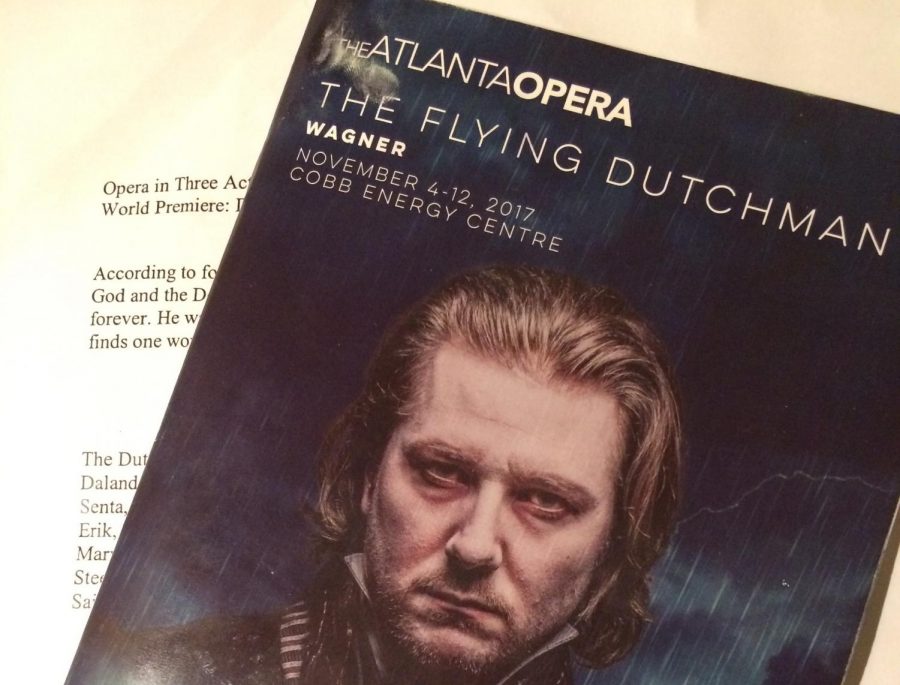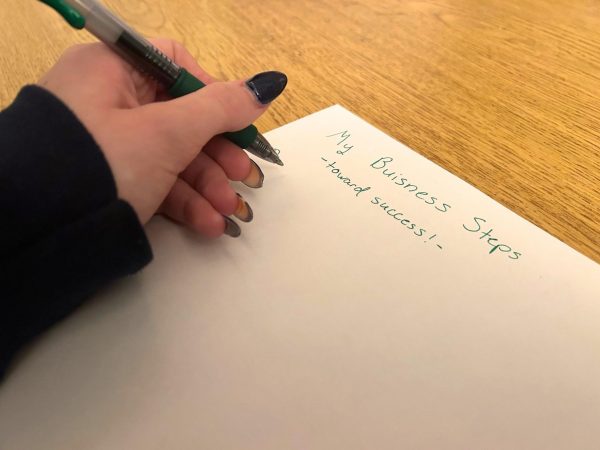Atlanta Opera sails to success with The Flying Dutchman
Attendees received programs describing the production and crediting its participants. The Opera also provided sheets describing the history and plot of The Flying Dutchman to viewers who attended a pre-opera talk before the show.
November 28, 2017
Nineteenth-century German composer Richard Wagner derives a great deal of his fame among latter-day opera fans from his four-part Viking-centered magnum opus The Ring of the Nibelung. Earlier in his career, however, he composed a wide variety of operas, a number of which remain performed today. From Saturday, November 4, to Sunday, November 12, the Atlanta Opera put on Wagner’s early Romantic masterpiece, The Flying Dutchman.
Originally written as one complete whole but performed here in three acts, the opera chronicles the romance between the Flying Dutchman (Wayne Tigges), a sailor cursed to roam the seas forever until he finds a lover who remains faithful until death, and Senta (Melody Moore), the daughter of a Norwegian ship captain (Kristinn Sigmundsson) whom the Dutchman encounters at sea. While the two quickly develop a connection, they meet with resistance from Senta’s ex-boyfriend Erik (Jay Hunter Morris), and the Dutchman’s supernatural connections and eerie air draw the suspicions of those around them. The tragic trajectory of their doomed affair constitutes the focus of the opera.
The excellence of the production made itself evident from an early point in the opera. Special effects in the show blended a keen sense of place with an impressionistic sensibility, brilliantly accenting the contrast in the story between normal and paranormal elements. The characters’ costuming also intelligently conveyed various aspects of their personalities, from the Dutchman’s dark, layered garb to the bright yellow raincoats of the jolly, frivolous Norwegian seamen. Although certain effects did tend to stretch the audience’s suspension of disbelief, the production did a commendable job of achieving both the right proportion of realism and a genuine emotional connection with the audience.
Undoubtedly, however, the opera held its greatest asset in the singing. Melody Moore’s rich, piercing soprano as Senta struck all the right notes with the audience, while bass singer Kristinn Sigmundsson played her father, Daland, with a perfect balance of emotion and dramatic grounding. Both Tigges and Morris also offered inspired, emotional performances, completing the show’s record of excellence. Despite the occasional underwhelming backing singer, the cast in general did thorough justice to the depth and brilliance of Wagner’s music.
The Flying Dutchman shows Wagner’s genius in its first real manifestation, and the Atlanta Opera’s production makes the opera’s virtues clear. It, or any future performance at the Atlanta Opera, comes highly recommended.
The Chant’s Grade: A+

















